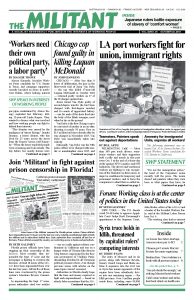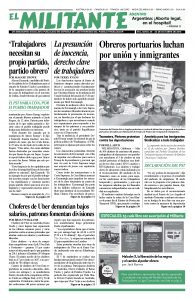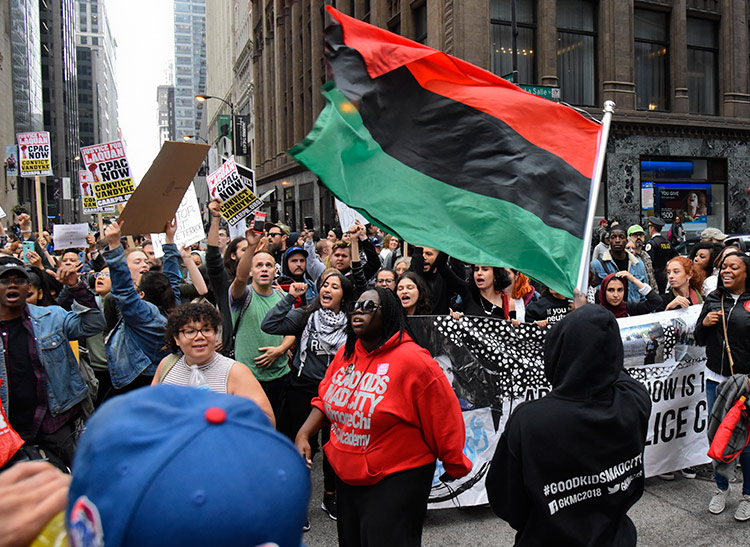CHICAGO — After less than 8 hours of deliberation, the jury in the three-week trial of Jason Van Dyke — the cop who killed 17-year-old Laquan McDonald in October 2014 — returned guilty verdicts on 17 of the 18 charges against him.
Jurors found Van Dyke guilty of second-degree murder (he had been charged with first-degree murder) and 16 counts of aggravated battery — one for each of the shots fired into the body of the Black teenager, most when he lay on the ground.
Van Dyke is the first Chicago cop to be convicted of murder in an on-duty shooting in nearly 50 years. Free on $1.5 million bail since shortly after he was charged in November 2015, Van Dyke was immediately taken into custody.
Nationally, Van Dyke was the 94th police officer to be charged with murder or manslaughter since 2015, and the 34th to be convicted, according to statistics compiled by Bowling Green State University law professor Philip Stinson.
McDonald’s mother, Tina Hunter, was not in the courtroom for the verdict. But his great-uncle, Rev. Marvin Hunter, told the press her reaction to the verdict was “relief” and “tears of joy.”
“Now we can go home and sleep, knowing Laquan is at peace,” Marvin Hunter said.
Mayor Rahm Emanuel and the cops had connived to keep the video showing the killing hidden for more than a year. William Calloway, a prominent Chicago activist who helped force the release of the video three years ago, told the press he felt justice had been served. He said the verdict proved to the city and the country that a white police officer can be held accountable for killing a Black person.
“It means everything,” Calloway said. “It means more than what words can explain.”
Alford Slee, a worker at a nearby Walmart, told the Militant, “I think justice has been served for what happened to McDonald and that’s good for all working people. Hopefully McDonald’s family members are OK and safe. We should keep them in our prayers.”
Harry Bradley, another Walmart worker, echoed the sentiment of many. “In my opinion he should have been convicted of first-degree murder,” he said. “But it’s a victory for us because he didn’t get off with just a slap on the wrist.”
The outrage that followed the release of the video sparked protests across the city.
And the video played a key role in the trial and verdict. Van Dyke took the stand to try and argue that what happened justified him in fearing for his life and opening fire. But each thing he raised, including the claim that McDonald was trying to get up from the ground, was contradicted clearly in the video, which was shown to the jury multiple times.
The jurors stayed around after the verdict. “It seemed like he was finally giving the play after they had been rehearsing with him for weeks,” one juror, a Caucasian woman, told the press. “We just didn’t buy it.”
City authorities had prepared for big protests if Van Dyke had been acquitted. The cops cancelled days off and prepared to put officers on 12-hour shifts. The Chicago Public Schools told students they were free to walk out and protest, but not for too long.
Van Dyke’s partner, Joseph Walsh, who testified for the prosecution under a grant of immunity, faces charges of obstruction of justice and conspiracy in a separate case, alongside two other officers.


